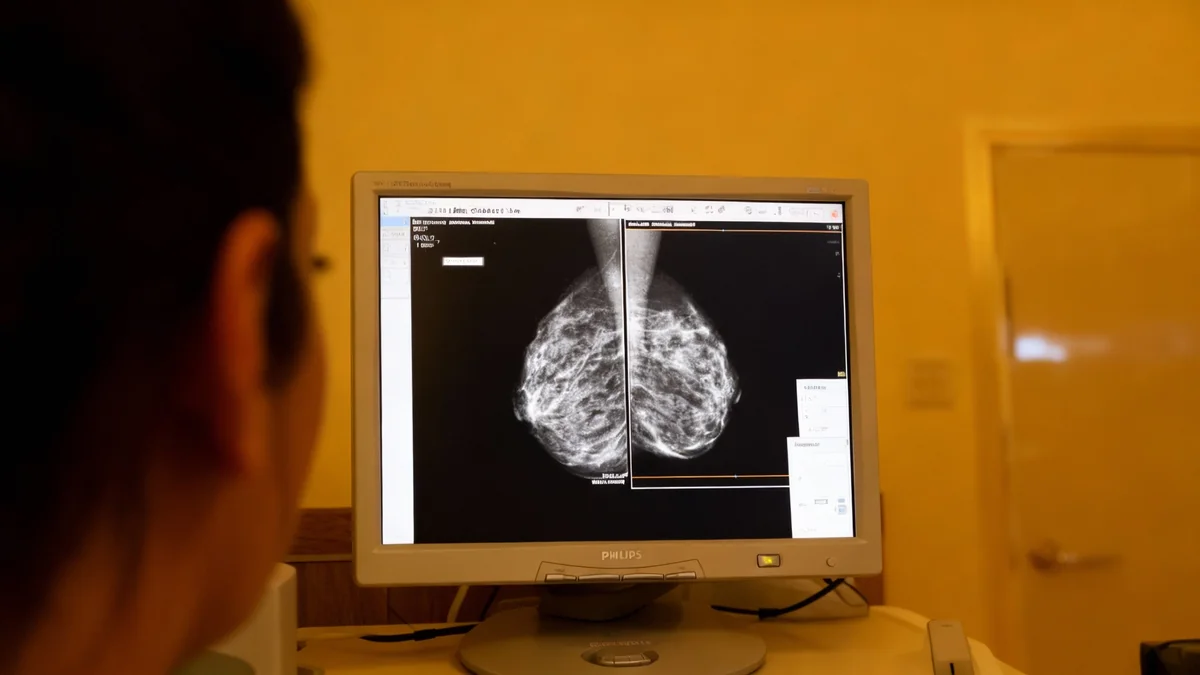The federal government is set to launch a six-year pilot program on January 1 that will use artificial intelligence to help determine Medicare coverage for certain medical procedures. The program, which will be tested in six states including Washington, has drawn criticism from medical professionals and lawmakers who are concerned about the role of AI in healthcare decisions and potential steps toward Medicare privatization.
Key Takeaways
- A new Medicare pilot program, WISeR, will use AI to review the necessity of certain outpatient procedures starting January 1.
- The program will operate in Arizona, New Jersey, Ohio, Oklahoma, Texas, and Washington for six years.
- Critics, including doctors and lawmakers, express concerns about patient care, financial incentives for denying procedures, and a lack of transparency.
- The Centers for Medicare and Medicaid Services (CMS) states the goal is to reduce fraud, waste, and inappropriate services.
Details of the New AI-Powered Program
The U.S. Centers for Medicare and Medicaid Services (CMS) will implement a new model known as Wasteful and Inappropriate Services Reduction, or WISeR. This initiative will apply to traditional Medicare beneficiaries in the six selected states. Washington, one of the states in the pilot, has approximately 1.6 million Medicare beneficiaries, with about half enrolled in the traditional program.
Under WISeR, third-party companies will use artificial intelligence to conduct prior authorization reviews for specific outpatient procedures. Participation for doctors will be voluntary. Those who opt in will submit requests for approval before performing a procedure, while those who do not will have their claims subjected to traditional post-procedure payment reviews.
The primary incentive for physicians to participate is the assurance of payment upfront, which avoids the risk of a claim being denied after the service has already been provided to the patient.
Which Procedures are Covered?
The program targets services that federal officials believe are often costly without providing significant medical benefits. These include:
- Skin and tissue substitutes
- Impotence treatments
- Deep brain stimulation
- Cervical fusion
- Knee arthroscopy for osteoarthritis
Concerns from Medical and Political Leaders
The introduction of AI into Medicare decisions has been met with significant resistance. Medical professionals worry that algorithms cannot account for the unique circumstances of individual patients. Dr. Matt Hollon of the Washington State Medical Association expressed surprise at the news, stating, “Patients expect their care to be guided by doctors, not insurance companies or automated systems.”
A major point of contention is the payment model for the third-party review companies. These firms will be compensated with a portion of the savings generated from denied procedures. Critics argue this creates a direct financial incentive to refuse care.
“The use of AI is looking at this sort of aggregation of data, right? That doesn’t apply to individual patients and may not recognize an individual circumstance, and then they get paid to deny care,” Dr. Hollon commented. “It’s antithetical to health care.”
Political figures have also voiced strong opposition. Sen. Patty Murray, D-Wash., described the program as a “backdoor move by Republicans to privatize Medicare and let AI decide who deserves health care.” She has pledged to oppose the initiative in the Senate.
Prior Authorization in Context
Prior authorization, the process of getting pre-approval from an insurer, is already a common and often criticized practice in Medicare Advantage plans, which are managed by private companies. In contrast, traditional Medicare has rarely required it. Data shows that most initial denials under Medicare Advantage are eventually overturned on appeal, but the process can create delays and cause some patients to abandon necessary care.
Federal Response and Program Safeguards
CMS maintains that the primary objective of the WISeR program is to protect patients and the Medicare system. A spokesperson for the agency stated the goal is to “help patients avoid unnecessary, inappropriate procedures across a narrow set of services” and to combat fraud and waste.
The agency also noted that safeguards are in place. Any denial of care initially flagged by an AI system must be reviewed by a human healthcare professional before a final decision is made. Furthermore, the spokesperson said the third-party companies will face penalties for wrongful denials and for failing to make decisions in a timely manner.
The selection of Washington as a test state was based on the agency’s “goal of testing across diverse practice environments to ensure a reliable and valid model test.”
A Lack of Clarity and Calls for Oversight
Despite these assurances, many stakeholders feel they have been left in the dark. Hospitals and patient advocates in Washington report receiving few details about the program's rapid implementation.
“What hospitals do get concerned about is cumbersome processes that essentially just slow the system down, make it so that it’s hard for patients to get the care they need, make it hard for hospitals to get paid,” said Taya Briley, general legal counsel at the Washington State Hospital Association.
In response to the lack of information, U.S. Rep. Suzan DelBene, D-Medina, led a group of over a dozen colleagues in a letter to CMS Administrator Mehmet Oz, seeking answers to numerous questions about the pilot. “This should be a bipartisan issue,” DelBene said. “There should be concern about making sure that people have access to care in all these states and understand exactly how the models work.”
Mixed Perspectives on Potential Outcomes
While criticism is widespread, not all view the program as entirely negative. Tim Smolen, a program manager at Washington’s Office of the Insurance Commissioner, suggested WISeR could be a “net positive” if it works as intended. “We’ll have a more definitive yes or no (if) Medicare is going to pay for it faster,” he said. “So there should be fewer surprises for providers and for beneficiaries.”
Meanwhile, patient advocacy groups are proceeding with caution. An AARP spokesperson confirmed the organization is “watching carefully,” balancing the need to address Medicare fraud with the imperative that “the health care of older Americans must always come first.”
The debate over the role of AI and prior authorization is also active at the state and federal levels. Washington state lawmakers are expected to reconsider legislation in 2026 to increase oversight of the practice. At the federal level, Rep. DelBene is co-sponsoring a bipartisan bill aimed at streamlining the existing prior authorization process for Medicare Advantage enrollees.





